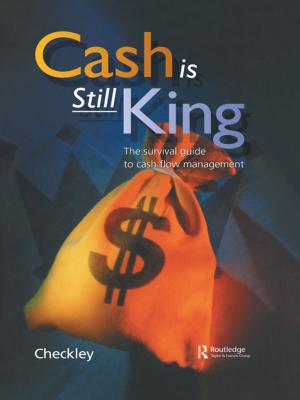Developing Alternative Frameworks for Explaining Tax Compliance
Business & Finance, Economics, Microeconomics, Finance & Investing, Finance| Author: | ISBN: | 9781136970658 | |
| Publisher: | Taylor and Francis | Publication: | June 10, 2010 |
| Imprint: | Routledge | Language: | English |
| Author: | |
| ISBN: | 9781136970658 |
| Publisher: | Taylor and Francis |
| Publication: | June 10, 2010 |
| Imprint: | Routledge |
| Language: | English |
Over the last several decades, there has been a growing interest in theoretical, empirical, and experimental work on all aspects of tax compliance and tax evasion. The essays in this volume summarize the existing state of knowledge of tax compliance and tax evasion, present new thinking about this issue, and analyze the empirical relevance of these new perspectives. The original essays in this volume represent an attempt to provide a framework on compliance that moves beyond the economics-of-crime perspective, one that provides a more complete understanding of individual (and group) decisions, and one that is more consistent with empirical evidence.
It is the insights of behavioural economics that provide much of the bases for these essays and the main theme running through this book is that the basic model of individual choice must be expanded, by introducing some aspects of behaviour or motivation considered explicitly by other social sciences.
Over the last several decades, there has been a growing interest in theoretical, empirical, and experimental work on all aspects of tax compliance and tax evasion. The essays in this volume summarize the existing state of knowledge of tax compliance and tax evasion, present new thinking about this issue, and analyze the empirical relevance of these new perspectives. The original essays in this volume represent an attempt to provide a framework on compliance that moves beyond the economics-of-crime perspective, one that provides a more complete understanding of individual (and group) decisions, and one that is more consistent with empirical evidence.
It is the insights of behavioural economics that provide much of the bases for these essays and the main theme running through this book is that the basic model of individual choice must be expanded, by introducing some aspects of behaviour or motivation considered explicitly by other social sciences.















